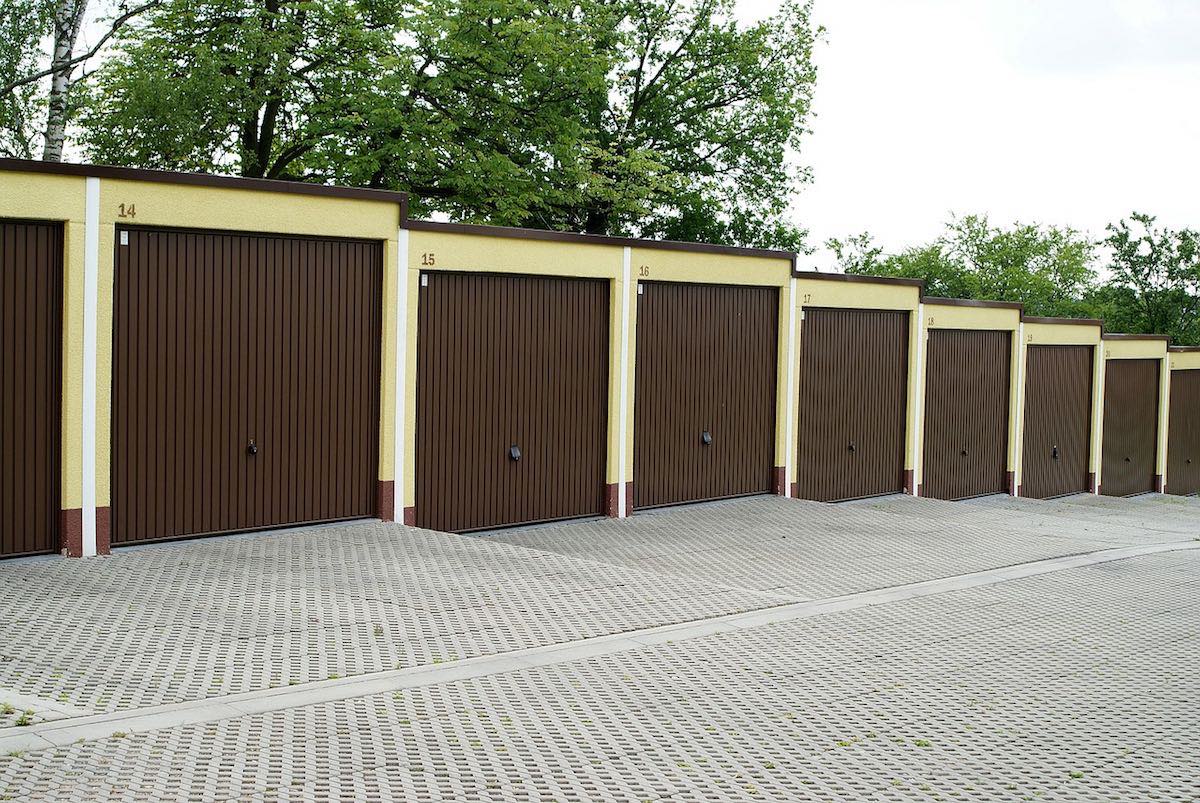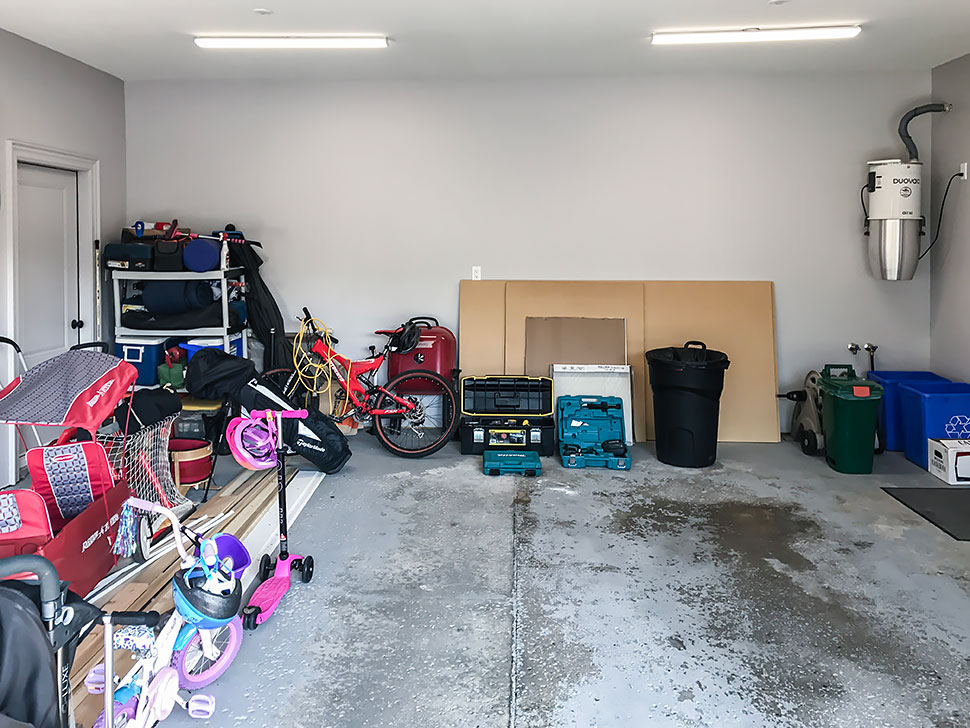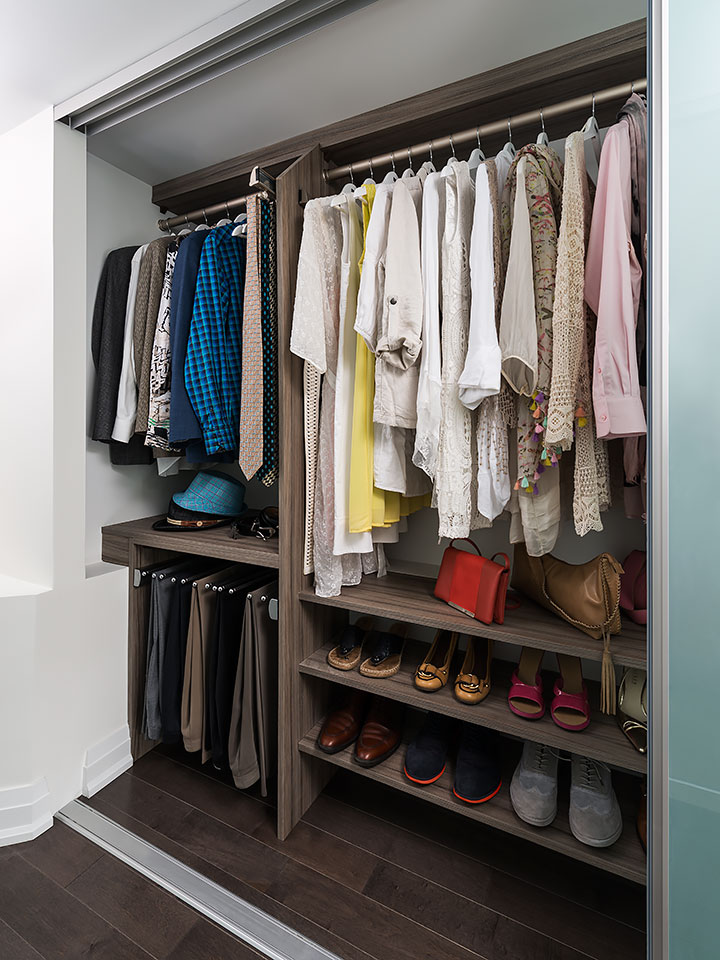Whoever came up with the expression “we’re supposed to own our stuff, not let our stuff own us” no doubt spoke from first-hand experience.
The realization that you own far more than you need or use is a sobering one. It’s also the perfect time to re-evaluate what’s truly worthy of occupying space in your home.
Clutter is a nuisance, a productivity killer, and has a negative impact on your finances, health, and overall quality of life.
The high cost of clutter can be found in ways that are quite obvious and others that you may be completely overlooking.

Renting a self storage unit is nothing more than a long-term drain on your finances.
How much does the cost of clutter affect you?
Any room in a house or condo that’s disorganized and cluttered has some type of detrimental impact on the occupants of that home.
And belongings that are stored remotely from your residence may not be taking up living space or slowing down your productivity at home, but they sure are a constant drain on your finances.
If you take the time to “edit” your belongings, you’ll end up saving money, getting more out of your living space, and feeling less stressed.
Here are five ways the cost of clutter may be affecting you.
1. Clutter affects your health
It’s an all-too-common occurrence where someone looks around their cluttered home, wonders how their living space got so disorganized, and gets incredibly discouraged.
Clutter is known to be a liability to your mental and physical well-being. Being surrounded by physical clutter ironically adds to your mental clutter, making you feel unsettled and not in control of your surroundings…in other words, stressed.
This can affect your sleep, your confidence level, and your mood. You’ve undoubtedly had a few run-ins with a family member at some point over their (or your) organizational shortcomings.
Like any problem, the longer you avoid dealing with decluttering, the more daunting the whole process seems. This overwhelming and hopeless feeling only exacerbates your lack of motivation to take action.
A Huffington Post poll found that 55% of Americans cite their home’s lack of organization as a major source of stress. 84% of them worry about whether their homes are clean enough. This reveals another cost of clutter – it tends to be an embarrassment and makes you less likely to have visitors over.
In extreme cases, excess clutter literally makes a home less safe. Stacked piles of junk become tipping hazards, loose floor clutter presents tripping hazards, and a home becomes a greater fire risk. The higher presence of allergens like dust, mould, mildew, and various bacteria types also contribute to a less healthy living space.
2. More clutter = less living space
It’s a natural inclination for us fill up any empty space in our homes with stuff. If you set down roots in the same spot for a long time, that can lead to a lot of stuff you don’t use much (or at all) taking up valuable square footage.
For most people, their home is their most sizable investment. And high real estate prices, particularly in major cities, makes every square foot in your home even more precious.
Consider these statistics:
- One in seven Americans have a room in their home they cannot use because it is filled with things they rarely use. (ClearVoice Research study)
- 20% of the 1,500 North American respondents to a Garage Living poll say they’re unable to park in their garage due to clutter.
- Only about 20% of the things we own are actually used. (LexisNexis study)
- Disorganization (not lack of space) causes 80% of household clutter. (Soap and Detergent Association study)
As one of the above stats points out, garages are particular clutter magnets, as are spare rooms. If it feels like your home is just too small, eliminating the junk you don’t need and making better use of your home’s underutilized storage space will open up a wealth of space that can used more effectively.
Your garage could actually start accommodating parked vehicles once again or perhaps that spare room could be turned into a craft room or home office.

25% of people with 2-car garages can’t park in them at all because of clutter and a third can only park one car. (U.S. Dept. of Energy study)
3. Storage units waste your money
There are more than a few stories online of people who came to the realization that the money they’ve spent renting a self storage unit for years actually cost them more than the estimated value of the items being stored.
This is an extreme example, of course, but in most cases it’s hard to justify renting a self storage unit long-term. Exceptions could include any of the following instances:
- you’ll be out of the country for an extended period of time and it doesn’t make financial sense to keep your current residence
- a recent move to a smaller home has left you with more belongings than you have room for
- you’re using a storage unit temporarily to hold the belongings of a recently deceased friend or family member
A Self Storage Association stat shows that one in 17 American households rented a storage unit in 1995. Today, that number has increased to one in 10 households.
Maclean’s magazine reports that there’s a boom occurring now in the self storage industry in North America. Americans use a whopping nine square feet of self storage space per capita, while Canadians use two square feet.
Comparatively speaking, that might not seem like much, but it’s still a lot. The price for a 10′ x 10′ storage unit (the most popular size) in the Greater Toronto Area can cost anywhere from $190-$395. If we use the amount that’s right in the middle of that gap ($292), that works out to $3,500 per year in storage fees.
Trust us, self storage facilities want you to forget about your stuff or not deal with it. Here are three more reasons to reconsider using them:
- there are often hidden fees that drive the advertised cost of a storage unit up (for insurance, more secure locks, or an easier-to-access unit location)
- you’re leaving the safekeeping of your belongings to strangers and a (hopefully secure) lock
- the climate control and lighting costs for the massive amount of space storage facilities occupy has a huge environmental footprint
The remote storage business model has evolved in recent years, too. Startup companies in major cities like Toronto, New York City, and Los Angeles now offer a “valet storage” service. They’ll pick up and store your things and return them to you when needed, if you can believe it.
4. Clutter slows down your productivity
Whether it’s at work or at home, clutter unquestionably slows down your productivity.
Naturally, there’s the time that gets wasted searching for things like car keys, makeup, home office supplies, a remote, a tool, or a wallet. It’s estimated the average person will waste a full year of their lives looking for lost or misplaced items.
“Choice overload” is another time waster. An example of this would be taking more time than you should to choose an outfit because your reach-in closet is overloaded and disorganized.
Having too many things to choose from can also be caused by duplicate purchases being made because you’re unable to find something and buy it again.
Digital clutter is another problem. If you’ve ever gone for a long period of time without replying to emails or deleting messages from your email account, you know how it feels to be staring at an overwhelming amount of digital clutter that needs cleaning up.
It’s a simple fact that “standard” clutter (like stacks of boxes or storage bins, unused furniture stacked against a wall, or obsolete electronics stashed in a closet) makes it less easy to clean a home.
You have to clean around it, move it around, or ignore cleaning certain areas altogether if you don’t feel like moving things.
Here’s another sobering statistic for you – a National Soap and Detergent Association study estimates that the average home would have 40% less housework to do if its clutter was eliminated.

A tidy closet like this one improves the efficiency of your daily routine by cutting down on time that’s wasted searching for things.
5. Hiring pros to deal directly with clutter gets expensive
A lack of time or simply not knowing where to start cleaning up are common reasons clutter doesn’t get dealt with.
If things really spiral out of control with your clutter, hiring a cleaning service, professional organizer, junk removal service, or renting a dumpster bin may be your chosen course of action to fix things.
Most of these clutter cleanup services don’t provide lasting benefits, especially if you’re unwilling to change some bad organization habits.
Your home will need cleaning within a week or two. It’s going to refill with clutter eventually and need another visit from a junk removal company.
And consider the pointlessness of the time and expense it takes to transport your clutter if you’re moving and hire professional movers.
Instead of spending money on services that don’t deliver substantial long-term benefits, invest in better storage and organization systems that will serve your home well for years to come.
Cut the high cost of clutter in your home
Cleaning up your home’s clutter won’t be a one day project. Focus on organizing one room in your home at a time. You’ll be carried by the momentum that comes with seeing each untidy area of your home become tidy and functional once again.
Why not speed up the process of achieving your goal of a clean, orderly home? Our organization systems aren’t merely “one more thing just taking up space in your home”.
They’re highly functional and will actually improve your living space by making it a lot easier to keep your home tidy and running smoothly.
Book your free in-home consultation with one of our design consultants today to begin taking action to minimize the cost of clutter in your home.
Please share this post if you found it useful.
